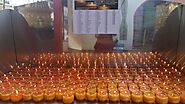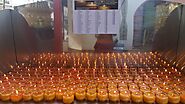-
About
- About Listly
- Community & Support
- Howto
- Chrome Extension
- Bookmarklet
- WordPress Plugin
- Listly Premium
- Privacy
- Terms
- DMCA Copyright
- © 2010-2025 Boomy Labs

Listly by thekchencholing-seomasters

Hey there, fellow students!
Feeling the exam stress piling up? We totally get it. Late-night study sessions, the constant race against the clock – it can be tough. But guess what? There are ways to manage and reduce that stress through self-care, and we're here to guide you through it!
First things first, what's self-care? It's not just a trendy term; it's all about taking care of your physical and mental well-being. No need for complicated rituals or extra hours in the day.

Dunbar’s Theory based on some research suggests that the human brain is limited in the number of individuals with whom it can maintain a “social relationship”, suggesting a maximum of 150.
Most of us have a lot of acquaintances - just look at our social media list - but quite often we really don’t know that much about each other, sometimes even about our own family and closest friends.

Dunbar’s Theory based on some research suggests that the human brain is limited in the number of individuals with whom it can maintain a “social relationship”, suggesting a maximum of 150.
Most of us have a lot of acquaintances - just look at our social media list - but quite often we really don’t know that much about each other, sometimes even about our own family and closest friends.

It is 1999.
The digits on the clock reads 8.10pm.
The phone rings.
A familiar voice drifts out from the phone. “Why are you not attending teaching?” It is Singha Rinpoche.
He does not sound pleased. I make up some lame excuse and he brushes it off.
"Come now,” he says.

There is a contradiction in all of us - we always seek a peaceful, stable, serene life with no problems. Yet, for probably all of us, when we look back at our lives, we realise that we grew, learnt and changed most as a result of (very often) challenging, difficult or stressful situations.

It was early 1999. Singha Rinpoche had advised a student that he should have 100,000 Tsa-Tsa - the small statue you can wear in an amulet or sometimes bigger - of Lama Tsongkhapa made. Rinpoche also wanted to go to visit the stupa of his Buddhist teacher Phra Mahathongkum outside of Bangkok. So off we went, a handful of students and Rinpoche to Bangkok for a sort of “pilgrimage”.

Ouch. That was what Rinpoche said at a temple committee meeting. It was not directed at me personally but was in relation to something I felt responsible for - so the words stung. In previous musings I mentioned how we should try to take what Rinpoche says to us positively. Giving advice like that is easy but when it happens to you, it is not always easy to be objective and dispassionate, remain calm and unaffected.

In modern day communication training, we are told to be clear and concise. We use various means to check whether the person we have communicated with has understood our message etc. Over the years, I have realized that this expectation of communication that we, as a listener, often have does not apply to conversation with our Gurus. Does that mean they are not clear and concise? No, they are - but our interpretation of what we think we have heard them, makes a difference.

Many people seek Gurus who are internationally famous with titles who are recognised and respected. I suppose it is beneficial to develop such a karmic link, but these very busy teachers - who travel the world with tens of thousands of disciples, students and followers - are typically very difficult to contact. I consider myself unbelievably fortunate as Singha Rinpoche makes himself available to us pretty much 24/7.

That was the question Rinpoche asked me each time I made an offering. This was some 20 years ago. I would babble some reason in response, usually to say it was to repay his kindness, to thank him for teaching etc. I wondered why he kept asking me that question. A possible answer and a probable reason as to why he asked this question dawned on me many years later.
